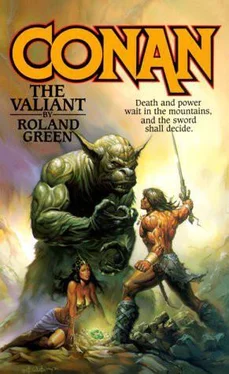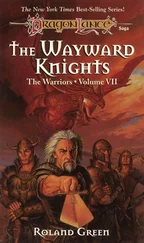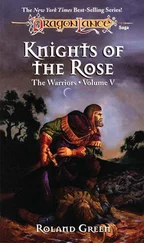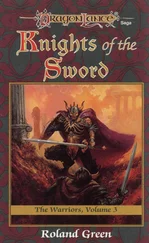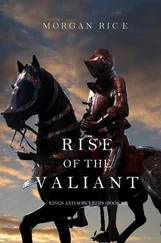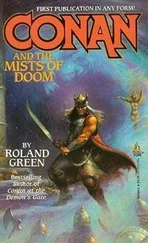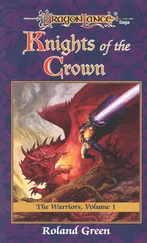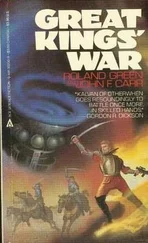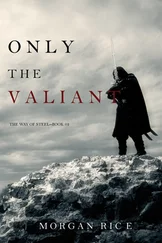CONAN THE VALIANT
by
Roland Green
Conan drew back as far as the hall would allow. When he plunged forward, he was like an avalanche on a steep slope. The bolt was made to resist common men, not Cimmerians of Conan's size and strength. The bolt snapped like a twig and the door crashed open.
Conan flew into the room, nearly stumbling over Illyana, who knelt at the foot of the bed. She clutched the bedclothes with both hands and had a corner of the blanket stuffed into her mouth.
She wore only the Jewel of Khurag in its ring on her left arm. The Jewel seared Conan's eyes with emerald flame.
"Don't touch her!" Raihna cried.
"She needs help!"
"You will hurt, not help, if you touch her now!"
Conan hesitated, torn between desire to help someone clearly suffering and trust in Raihna's judgment. Illyana settled the question by slumping into a faint. As she fell senseless, the flame in the Jewel died.
The Adventures of Conan published by Tor Books
CONAN THE BOLD by John Maddox Roberts
CONAN THE CHAMPION by John Maddox Roberts
CONAN THE DEFENDER by Robert Jordan
CONAN THE DEFIANT by Steve Perry
CONAN THE DESTROYER by Robert Jordan
CONAN THE FEARLESS by Steve Perry
CONAN THE HERO by Leonard Carpenter
CONAN THE INVINCIBLE by Robert Jordan
CONAN THE MAGNIFICENT by Robert Jordan
CONAN THE MARAUDER by John Maddox Roberts
CONAN THE RAIDER by Leonard Carpenter
CONAN THE RENEGADE by Leonard Carpenter
CONAN THE TRIUMPHANT by Robert Jordan
CONAN THE UNCONQUERED by Robert Jordan
CONAN THE VALIANT by Roland Green
CONAN THE VALOROUS by John Maddox Roberts
CONAN THE VICTORIOUS by Robert Jordan
CONAN THE WARLORD by Leonard Carpenter
and coming soon:
CONAN THE INDOMITABLE by Steve Perry
To L. Sprague and Catherine de Camp, with respect and gratitude, and with special thanks to the Guild of Exotic Dancers of the Middle Kingdom of the Society for Creative Anachronism, Incorporated.
Prologue
SUNSET TINTED GOLD and crimson the snows of the Lord of the Winds, monarch of the Ibars Mountains. Twilight had already swallowed its lower slopes, while night shrouded the valleys.
Bora, son of Rhafi, lay behind a boulder and studied the valleys before him. Three stretched away from the foot of the Lord, like the spokes of a cartwheel. Mist rose from all. Had he been citybred, given to such fancies. Bora might have discerned monstrous shapes already forming out of the mist.
Instead, Bora's family had been shepherds and wolf-hunters in the village of Crimson Springs, when the forebears of King Yildiz of Turan were petty lordlings. These mountains held no strangeness for him.
Or rather, they had not, until two moons before. Then the tales began. In one valley, the mists turned green each night. Those who ventured into the valley to see why did not return, except for one who returned mad, babbling of demons unleashed.
Then people began to disappear. Children at first—a girl filling water jugs by a lonely stream, a shepherd boy taking food to his father in the pasture, a baby snatched while his mother bathed. Never was there any trace of the reavers, save for a foul stench that made the dogs turn away howling and sometimes a footprint that might have been human, if humans had claws a finger long.
Then grown men and women began to vanish. No village was spared, until people dared not leave their houses after dark and went about even in daylight in stout, armed bands. It was said that caravans struggling over the passes and even patrols of Yildiz's soldiers had lost men.
Mughra Khan, Yildiz's military governor, heard the tales but doubted them, at least where the villages were concerned. He saw nothing but rebellion looming and his duty clear: to put it down.
He was not such a fool as to arrest men at random and try to persuade the Seventeen Attendants that they were rebels. The Seventeen were not fools either. Mughra Khan strengthened his outposts, arrested the few men who protested, and waited for the rebels to either strike or skulk back into their lairs.
Neither rebels nor anything else human did either. But entire outposts began to disappear. Sometimes a few bodies remained behind, gutted like sheep, beheaded, dismembered by more than human strength. Once, two men reached safety—one dying, both mad and babbling of demons.
This time, the tales of demons were believed.
Of course Mughra Khan continued to believe in rebels as well. He saw no reason why both could not be menacing the peace and order of Turan. Messengers rode posthaste to Aghrapur, with requests for advice and aid.
What fate those messengers might meet, Bora did not know, and hardly cared. He was more concerned about the fate of his father, Rahfi. Rahfi accused some soldiers of stealing his sheep. The next day the soldiers' comrades arrested him as "a suspected rebel."
What fate suspected rebels might meet, Bora knew too well. He also knew that pardons often came to those whose kin had well served Turan. If he learned the secret of the demon reavers, might that not procure his father's release?
It would be good if Rahfi could be home in time to attend his daughter Arima's wedding. Though not as fair as her younger sister Caraya, Arima would bear the carpenter of Last Tree many fine sons, with Mitra's favor.
Bora shifted slightly, without dislodging so much as a pebble. It might be a long wait, studying these nighted valleys.
Master Eremius made a peremptory gesture. The servant scurried forward, holding the ornately-shaped chased silver vials of blood in either hand. Thos hands were filthy, Eremius noted.
Eremius snatched the vials from the servant and plunged them into the silk pouch hanging from his belt of crimson leather. Then he struck the rock at his feet with his staff and threw up his left hand, palm outward. The rock opened. Water gushed, lifting the servant off his feet, then casting him down, gasping and whimpering for mercy. Eremius let the water flow until the servant was as clean in person and garments as was possible without flaying him.
"Let that be a lesson to you," Eremius said.
"It is a lesson, Master," the man gasped, and departed faster than he had come.
The wet rock slowed Eremius not at all as he descended into the valley. His long-toed feet were bare and hard as leather, seeking and finding safe holds without the least spell bringing light. At the foot of the path two more servants stood holding torches. The torches were of common rushes, but burned with a rubicund light and a hissing like angry serpents.
"All is well, Master."
"So be it."
They followed him as he climbed the other side of the valley to the Altar of Transformation. He wished to arrive in time to correct whatever was not indeed well. The assurances of his servants told him little, except that the Altar had not been carried away by vultures or any of tonight's Transformations escaped.
Ah, would that Illyana was still friend and ally, or that he had snatched the other Jewel of Kurag from her before she fled! Then it would have mattered little whether she escaped or not. Before she found any way to oppose him, the twin Jewels would have given him irresistible power, both in his own right and through human allies.
Eremius nearly thought a curse upon Illyana. He quickly banished the impulse. The magic he used in a Transformation was unforgiving of anything less than total concentration. Once, he had sneezed in the middle of a Transformation and found its subject leaping from the Altar, partly transformed and wholly beyond his control. He had to summon other Transformations to slay it.
The Altar seemed part of the hillside itself, as in truth it was. Eremius had conjured it into being out of the very rock, a seamless slab as high as a man's waist and twelve paces on a side. Around the edge of the slab ran in high relief the runes of a powerful warding spell.
Читать дальше
